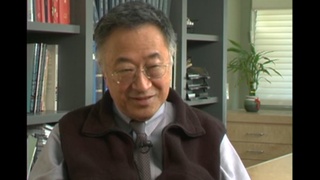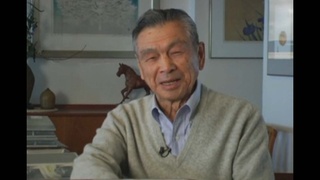Interviews
Neighbors' sympathy after Pearl Harbor
Well we had a retail florist right near University of Southern California, and my father when he first came here, he said “as long as you are in the United States of America, you deal with American people.” So we purposely stayed out of J-town. And most of our clientele was Americans. And so when we opened up, we were wondering whether if we should open up a business on a Monday, the following Pearl Harbor. But we did. And it, we had expressions of sympathy from our Lutheran Church people, and the Methodist Church people, and my Hakujin customers were very very sympathetic and they said anything that they can do to help us, they were willing to help us. So we didn’t have any problems there at that time.
Date: November 15, 2000
Location: New York, United States
Interviewer: John Esaki
Contributed by: Watase Media Arts Center, Japanese American National Museum










